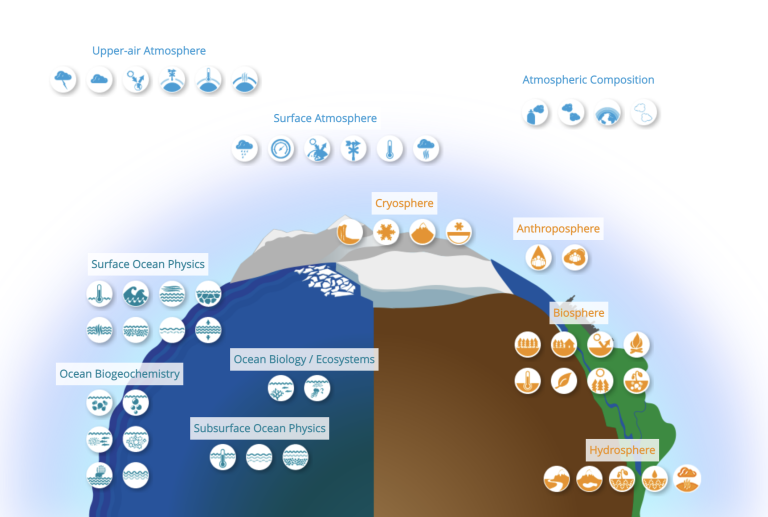Conference highlights need for global climate observations
An international conference has declared its commitment to a “comprehensive and sustainable global climate observing system” which is needed more than ever in view of rapid climate change.

An international conference has declared its commitment to a “comprehensive and sustainable global climate observing system” which is needed more than ever in view of rapid climate change.
Observations of our climate show unprecedented changes that are more widespread, rapid, and intense than in thousands of years. These changes affect all components of the climate system and every region on Earth. They cause more frequent and more extreme events such as heat waves, storms, heavy rainfall, and droughts that strongly impact human infrastructures and living beings, according to a declaration issued by the Global Climate Observing System (GCOS) conference.
“Observations underpin all weather, climate, water, and ecosystems services and products. Without the collection and sharing of these observations, the ability to understand, predict, mitigate, and adapt to changes in the climate system is limited,” Sabrina Speich, said the GCOS Climate Observation Conference chair.
The conference hosted by EUMETSAT from 17-19 October 2022 in Germany, focused on addressing urgent needs and gaps, and developed strategies and solutions for a sustainable future. It brought together 140 participants onsite and 400 online participants.
“Current changes to the climate are posing a threat to the Earth. The steps we take today matter for our future and EUMETSAT aims to play a part in supporting a more sustainable way forward for the planet,” EUMETSAT Director-General Phil Evans said at the close of the conference and in a statement on the organization’s commitment to address climate change.
Climate observations have been instrumental in the development of scientific assessments and policies, including Intergovernmental Panel on Climate Change (IPCC) reports and the 2015 Paris Agreement. They are the cornerstone of our efforts to mitigate climate change, adapt to future conditions and reduce and address future loss and damage.
The newly released 2022 GCOS Implementation Plan specifies the climate observations required to inform science, services and society. The report was requested by the United Nations Framework Convention on Climate Change (UNFCCC). The GCOS Implementation Plan identifies existing gaps in Earth observations and areas in need of improvement. These needs must be urgently addressed to progress towards a comprehensive and sustainable global climate observing system.
The conference promoted international dialogue amongst climate scientists, observations experts, operational services, United Nations agencies, intergovernmental organizations, and policy makers. It calls for a collective effort to sustain and improve the climate observing system, by defining a “global goal for observations”.

In particular, the conference participants unanimously call for UN Member States, and relevant agencies:
- Sustained, long-term funding, which is essential to ensure the continuity and expansion of observations needed to assess Essential Climate Variables. The provision of many observations is still supported through limited-term funding, and the climate observing system remains fragile.
- The addressing of key gaps in networks for observing Essential Climate Variables that have been identified in different components of the observing system, from the atmosphere to the ocean, from the cryosphere to the biosphere and the water in land. Priority areas for improvement are over parts of Africa, South America, South-East Asia, the deep ocean, and polar regions.
- The improvement of data quality, availability, accessibility and utility. Many climate observations are underexploited because of the lack of consistency in their processing, interoperability and usability. The conference has provided concrete pathways to improvements, identifying that increased effort is required to ensure the data can be readily used in reanalysis and are fit for purpose.
- The creation and maintenance of climate data repositories. To address and understand climate change, the longest possible time series need to be preserved and made available long term. Climate data must be made available through global data repositories, and their access must be free and open. The conference has identified the way to address this issue, including required actions and the need for increased funding to ensure data can be rescued from hard-copy or archaic digital formats to extend existing data time series.
- The addressing of emerging needs. Climate information needs are changing. New needs have been identified, such as increased frequency of observations for adaptation and mitigation measures that require addressing in the short term. The global climate observing system must evolve in response to such needs.
- Engagement with nations. Many climate observations are made by national agencies, which need support and regional and global coordination. The benefits of climate observations need to be widely understood and the contributions of national observations to global datasets require enhancement.
- The improvement of regional to local climate change information to address the gap between the top-down, global, production of observations and climate information and "bottom-up" local-scale decision making through better understanding of the local decision-making context and associated observational requirements.
- Enhancement of integrated and collocated observations of the physical, chemical and biological components of the climate system to better understand climate variability, trends and impacts, particularly on fragile ecosystems.
- Importance of reference quality observations in all domains.
- The conference participants call for the definition of an “action-oriented framework for observation" under the UNFCCC, which should assist the coordination of efforts by international and national stakeholders and guide observation needs to report on the impacts of climate change and support climate mitigation and adaptation. Observations remain fundamental to our understanding of our current and future environment to supporting decisions on sustainable development.










